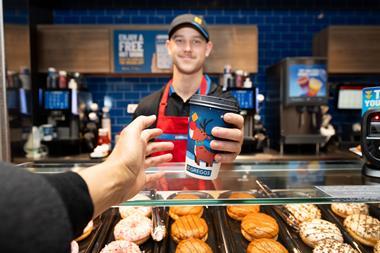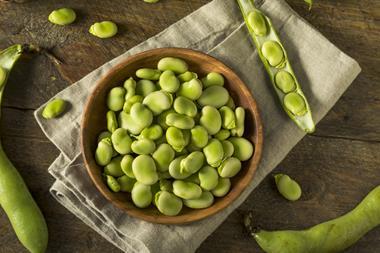Flour is currently the leading commodity cost pressure on Finsbury Food Group, the company has reported.
Group revenue at the cake, bread and morning goods supplier rose 0.5% on a like-for-like basis to £145.5m in the 26 weeks ended 29 December 2018, although total revenue fell 3.5% to £152.3m. UK bakery sales rose 1.7%.
The decline reflected the closure of the Grain D’Or bakery in the last financial year, but were partially offset by the acquisition of gluten-free manufacturer Ultrapharm last September. Group adjusted operating profit was flat at £8.7m, while adjusted group EBITDA rose 2.2% to £12.9m.
Finsbury chief executive John Duffy described the last trading period as “challenging”, but added the business had shown resilience as a result of capital investment, diversification into foodservice and high-growth areas such as free from, as well as a constant drive for efficiency.
“However importantly, alongside this, is our relentless drive to deliver on customer trends and ensure our products are not only best-in-class, but also what customers are looking for,” he said, citing the recent launch of a vegan brioche-style burger bun as an example.
“While there is no doubt that the wider market pressures will continue in the period ahead, our market position is solid and we are well positioned both now and for the longer term.”
Finsbury reported that cost pressures have included commodities, now led by flour, labour inflation driven by the National Living Wage, and utility inflation as a consequence of green levies and general inflation. As a result, the business had had to recover costs from customers, and would continue to do so.
According to Mintec figures, the cost of UK milling wheat is currently up 20.3% year on year, while EU milling wheat is up 23.8%. Supply has been under pressure in many parts of Europe following last year’s hot dry summer.
Finsbury said it expected stronger organic growth in the second half of its financial year following new business wins and product launches.
“The UK grocery market continues to be challenging, with seemingly no rest in cost inflation as a result of continued increased commodity prices alongside wider macro pressures. The broad channel, customer and product diversification of the group remains a solid platform for the business, and will continue to benefit us given our access to higher growth opportunities such as the faster growing foodservice channel,” it stated.
































No comments yet